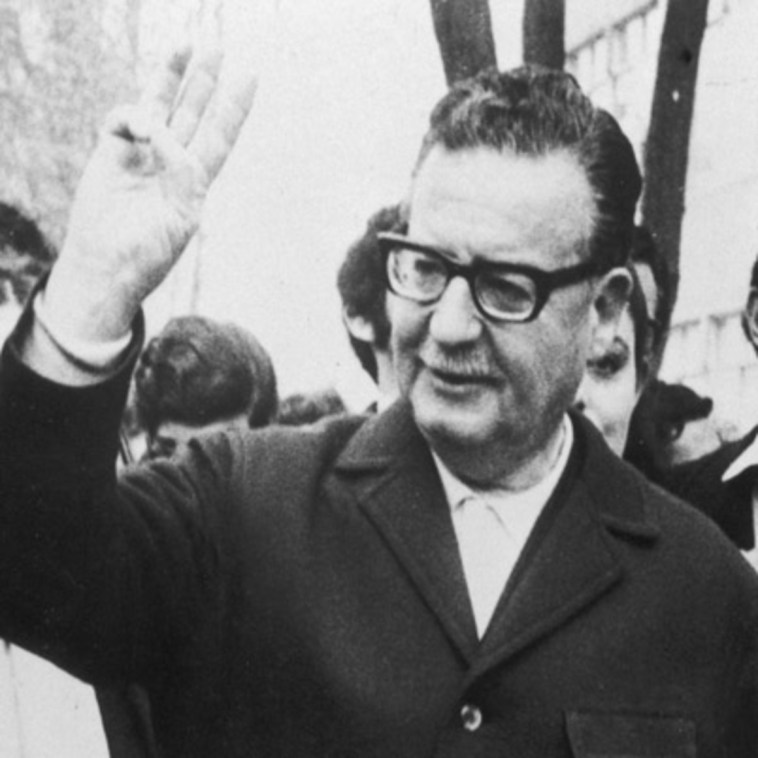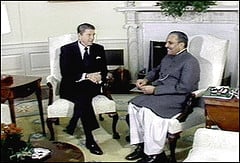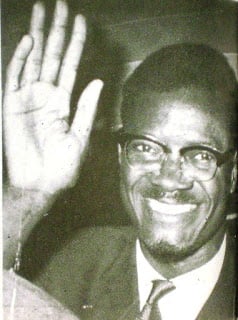U.S. Responsible for Coups Worldwide

by Amjad Hussain
First published on September 20, 2023
Sept. 11 is deeply singed in the collective memory of the American people.
The attacks on American soil on Sept. 11, 2001, were a watershed event that has affected almost everything we do.
I write this column in the background of our relentless preaching of democracy around the world, but the fact is our government has violated the democratic rights of people in other countries with abandon.
 It just happens that this year Sept. 11 marked another anniversary of events that happened 50 years ago. On that fateful day the democratically elected socialist president of Chile,
It just happens that this year Sept. 11 marked another anniversary of events that happened 50 years ago. On that fateful day the democratically elected socialist president of Chile,
Salvador Allende, was toppled and killed by the Chilean army with the support of the United States.
An army general by the name of Augusto Pinochet assumed power and for the next 17 years let loose a reign of terror on his people.
Pinochet’s crimes against his own people are monumental. He arrested 80,000 people, executed anywhere between 1,200 and 3,200, and tortured tens and thousands. In addition, thousands of Chileans disappeared on his watch.
While the country faced political instability and financial crisis, the dictator amassed vast amounts of wealth.
His 17-year rule of terror came to an end when people rejected him in a plebiscite in 1988. By the time of Pinochet’s death in 2006, there were already 300 criminal charges still pending against him for numerous human rights violations and embezzlement.
And all through this the Nixon administration stood by and supported the dictator.
 In 1979, the Pakistan army toppled the democratically elected government of Zulfikar Ali Bhutto. A meek and humble-looking army general, Zia ul Haq, became the dictator, and despite the promise of fresh elections within six months he protracted his rule for 10 years.
In 1979, the Pakistan army toppled the democratically elected government of Zulfikar Ali Bhutto. A meek and humble-looking army general, Zia ul Haq, became the dictator, and despite the promise of fresh elections within six months he protracted his rule for 10 years.
Zia ul Haq and Ronald Reagan
Left-leaning Bhutto had become an irritant for the United States. His idea of pursuing an independent foreign policy did not sit well in Washington. Neither did his ambition to develop an atomic bomb. Most people in Pakistan believe that the coup happened at the behest of the United States. Bhutto was later hanged by General Zia on flimsy evidence of ordering the murder of an opposition leader.
During the Soviet invasion of Afghanistan (1978-1989), General Zia was the darling of the United States. He committed his country as a front-line state in the war against the Soviets.
Billions of dollars and sophisticated arms and ammunition were channeled through Pakistan to Afghan Mujahideen or freedom fighters. Young Muslim men from around the world, including the United States, were lured to participate in the jihad — holy war — against the Godless Soviet infidels. After 10 years, the Soviets withdrew from Afghanistan in humiliation.
The United States and other Western countries also picked up and left, leaving behind a rampant drug culture, religious militancy, and terrorism in Pakistan.
At that time the United States determined that General Zia had outlived his usefulness. He died in the fiery crash of C130 airplane, taking down with him the U.S. ambassador, Arnold Raphel, who had at the last moment accepted General Zia’s invitation to fly with him to Islamabad, the capital.
In an exhaustive article for the New Yorker magazine the investigative reporter Seymour Hersh analyzed the possible causes of crash and concluded that sabotage caused the plan to explode in the the sky.
Then-Secretary of State George Shultz prevented FBI from investigating the crash even though two American citizens, the American ambassador, and a high-ranking American military officer, were killed in the crash.
The latest incident of American interference in Pakistan was the ouster of the populist Prime Minister Imran Khan. He had made an official visit to Russia, despite opposition by the United States on the eve of the Russian invasion of Ukraine. Later, he publicly stated that he was removed from office on behest of United States.
 And then there is the story of Patrick Lumumba. In 1960, Congo (later the Democratic Republic of Congo) wrestled independence from Belgium, and a young Patrick Lumumba was elected prime minister. Soon a Belgian-backed army mutiny threatened the nascent democracy.
And then there is the story of Patrick Lumumba. In 1960, Congo (later the Democratic Republic of Congo) wrestled independence from Belgium, and a young Patrick Lumumba was elected prime minister. Soon a Belgian-backed army mutiny threatened the nascent democracy.
Lumumba appealed to the United States and United Nations for help, but his pleas were ignored.
The rebels executed Lumumba in 1961 and threw the country in turmoil.
A 2001 report by the Belgian Commission implicated the United States and Belgium in the plot to kill Lumumba.
.
GR Editor’s Note
Lumumba was executed (by firing squad) on the 17th of January 1961 in the state of Katanga. The media and the governments casually placed the blame on UN Secretary General Dag Hammarskjöld for Lumumba’s execution.
A few months later on September 18, 1961, Hammarskjöld died in an air crash.
“Hammarskjöld was en route to negotiate a cease-fire between United Nations Operation in the Congo forces and Katangese troops under Moise Tshombe. His Douglas DC-6 airliner SE-BDY crashed near Ndola, Northern Rhodesia (now Zambia). Hammarskjöld perished as a result of the crash, as did all of the 15 other passengers. Wikipedia]
The UN Operation in the Congo was controlled by the U.S.
M.Ch, GR, September 26, 2023
Every country has the right to safeguard its interest at home and abroad.
But willful sabotage of democracy around the world contradicts our public stand on spreading democracy in the world.

